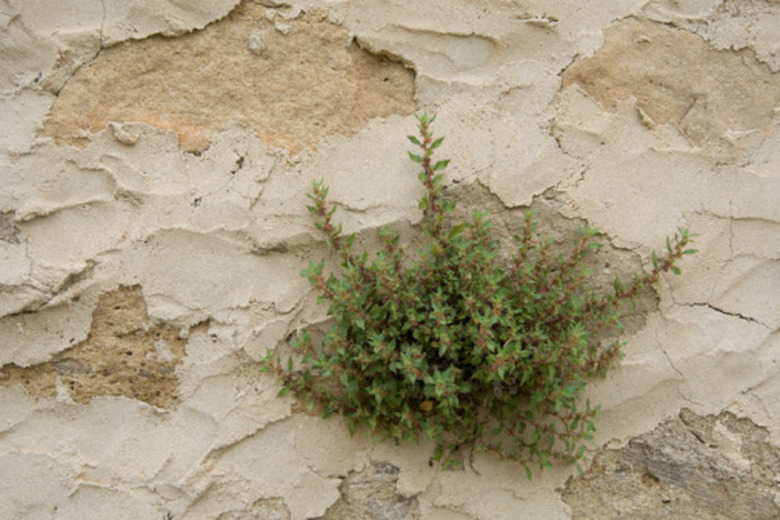Does Salt Water Kill Grass?
In large quantities salt in soil will kill grass and other plants. Rain will eventually flush small amounts of salt away, but large doses of salt will alter soil chemistry to the extent that it can no longer support grass.
Effects
Salt destroys soil's natural bacteria and absorbs water while extracting minerals. When enough salt saturates the ground, grass, weeds and other plants no longer have enough nutrients to survive.
Identification
Grass dying from salt saturation will appear wilted even when the surrounding soil is damp. Excessive salt will give soil a cracked appearance, and you may see salt crystals on top of the cracked ridges.
Significance
Salt water harms grass and soil, contaminates the community water supply and damages trees. These effects linger because large quantities of salt in the ground are slow to evaporate.
- In large quantities salt in soil will kill grass and other plants.
- Grass dying from salt saturation will appear wilted even when the surrounding soil is damp.
Salt And Water Mixture To Kill Weeds In Grass And Flowers
The war between weeds and gardeners has raged for hundreds of years. Some concoctions work better than others, and the weed dies. A mixture of salt and water in the soil can limit root formation and growth. The plant starves to death. This process is why salt kills the weeds in the landscape. Water is the mainstay of plant growth and reproduction. The boiling water produces almost instantaneous results. The best way to use a salt and water mix to kill weeds in the lawn or flower bed is the direct approach. The water does permeate the soil, and roots do not always grow directly under the plant. Avoid injury to surrounding plants by watering the favorable plants so the salt leaches into the ground below the root zone.
- The war between weeds and gardeners has raged for hundreds of years.
- A mixture of salt and water in the soil can limit root formation and growth.
